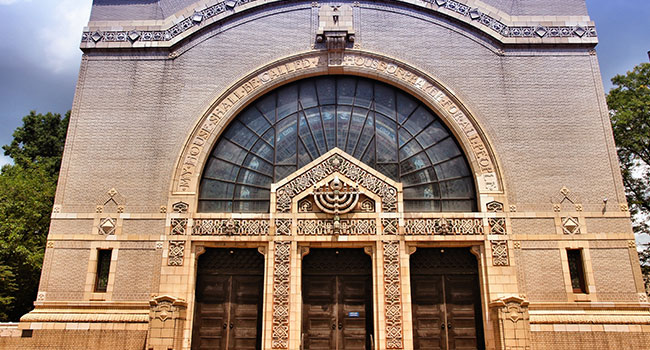
Synagogues Boost Security in Response to Shooting
Synagogues across the country are reexamining and boosting their security procedures following a deadly shooting at a Pittsburgh synagogue during Shabbat services Saturday morning.
- By Jessica Davis
- October 30, 2018
Synagogues across the country are reexamining and boosting their security procedures following a deadly shooting at a Pittsburgh synagogue during Shabbat services Saturday morning. During the attack, which left 11 dead and six wounded, the gunman allegedly yelled anti-Semitic statements.
In Huntsville, Alabama, the Temple B’nai Sholom safety committee met at their temple on Sunday to reexamine their safety plan. The temple’s president, Ann Vanleeuwen, said that the temple’s long-held security plan is constantly evolving. She said the security committee had Huntsville police officers and firefighters walk through their building to help evaluate their initial safety plan and are prepared to ask for the same assistance again if necessary.
According to Vanleeuwen, the temple has video surveillance inside and outside of the building, as well as locks on all the doors. She said the security committee is developing a plan to make sure the congregation knows how to evacuate in an emergency.
Temple Beth Am in Seattle has a security plan in place that includes protecting their religious school. In order to protect their plan, Rabbi Ruth Zlotnick didn’t divulge specific details, but she said their security measures include guards and a secured perimeter.
“We take it seriously, because every life is priceless, every life is precious,” she said.
In New York, the Monroe County Sheriff’s Office and the Brighton and Rochester Police Departments increased patrols around local synagogues and Jewish centers. Law enforcement patrolled the area around Rochester’s Temple Beth El during evening services on Saturday. Temple Beth El’s Executive Director Debbie Zeger said the temple has had security measures in place for many years.
“We already have a very detailed security plan at Temple Beth El,” Zeger said. “We always have security guards on staff if we have an event or service and sometimes in between. Our doors are kept locked and we buzz people in and we have other precautions.”
Temple Beth El in Bloomfield Township, Michigan, has been implementing recommended security measures for many years, said Rabbi Mark Miller, senior rabbi. The temple’s worshippers are greeted by helpful security personnel who work with an electronic entry system. The temple also uses special staff training, equipment and security technology.
Despite the anti-Semitic attack on Saturday, Rabbi Eric Berk of Huntsville’s Temple B’nai Sholom said he wants to keep the temple doors open and welcome any who want to learn and worship.
"We ought not to live our lives in fear,” Berk said. “There are, I'd like to believe, more people that accept us than those who hate us.”
About the Author
Jessica Davis is the Associate Content Editor for 1105 Media.